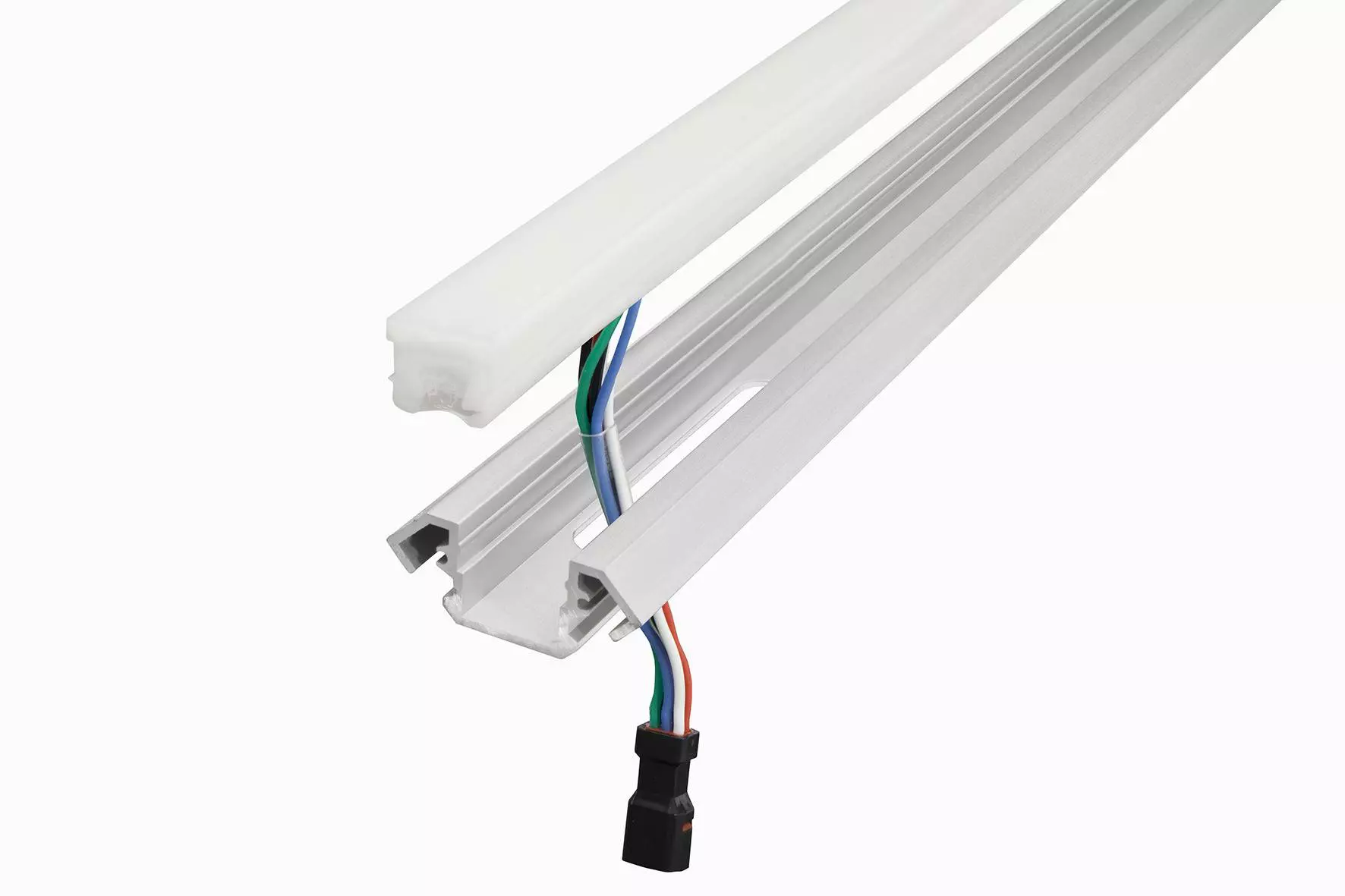Schlüter-LIPROTEC modules are available in the following material versions:
Profiles:
- AE = anodised aluminium
- EB = brushed stainless steel V4A material no. 1.4404 = AISI 316L
LED strip:
- Fluorinated, platinum-cured silicone, Shore hardness 60, degree of protection IP67
Material properties and areas of application
In special cases, the suitability of LIPROTEC modules must be verified, based on the anticipated chemical or mechanical stresses. The information provided below is intended as a general guideline.
Anodised aluminium: The aluminium features an anodised finish that retains a uniform appearance during normal use.
Aluminium is sensitive to alkaline media.
Cementitious materials, in conjunction with moisture, become alkaline, which may result in corrosion depending on the concentration and length of exposure (aluminium hydroxide formation).
Remove adhesive or grout immediately from visible areas and don't cover freshly installed assemblies with a protective foil. The profile has to be solidly embedded in the tile adhesive to prevent water from accumulating in small cavities.
Stainless steel: Stainless steel can withstand high mechanical stress and is highly resistant against chemicals. Even stainless steel of quality 1.4404 is not resistant to all chemical stresses. Substances such as hydrochloric or hydrofluoric acid or certain chloride and brine concentrations may cause damage. Special anticipated stresses should therefore always be verified in advance.
Uncut LED modules have IP67 protection. Shortened LED modules can reach compliance with protection level IP67 if they are properly sealed with the supplied end caps.
The fluorinated LED strips made of platinum-cured silicone are dirt-repellent and have a Shore hardness of 60.



